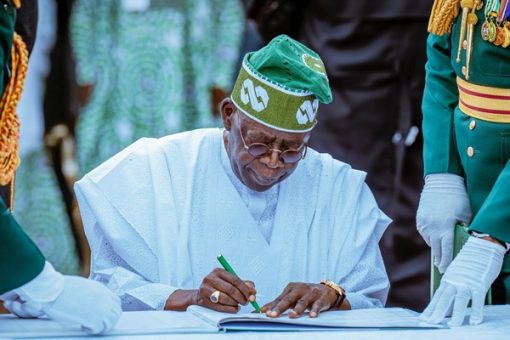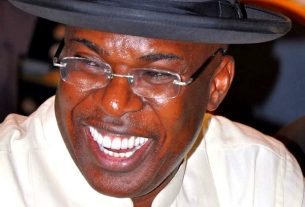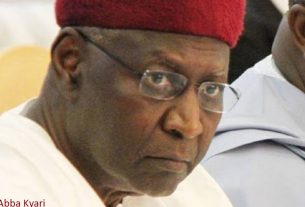The presidency on Wednesday dispelled widespread misconceptions surrounding President Bola Ahmed Tinubu’s recent correspondence to the National Assembly regarding Nigeria’s 2025–2026 borrowing plan.
Contrary to reports suggesting that the President is seeking to borrow a lump sum of $20 billion, the special assistant to the president on social media, Dada Olusegun, clarified that the communication is being grossly misrepresented.
In a detailed post on his verified X handle, @DOlusegun, Olusegun emphasised that President Tinubu’s request should not be construed as a blanket bid to plunge the nation into another round of massive debt accumulation.
“It is important to, very quickly, clear the misconception about the 2025–2026 MTEF (Medium Term Expenditure Framework) funding, which some people have now tagged as the president borrowing a $20bn lump sum.
“No, the President is not requesting to borrow $20bn, at least not like it has been made to sound”, Olusegun wrote.
According to him, the document transmitted to the National Assembly outlines a comprehensive framework that spans a two-year period—2025 to 2026—covering both federal and state government external financing plans.
“Periodically, nations come up with expenditure frameworks to guide how budgets will be executed over time. For the latest development, Nigeria’s MTEF covers a period of two calendar years: 2025–2026”, he explained
The communication to the National Assembly, Olusegun noted, includes details on how Nigeria, through the Federal Government and the 36 state governments, plans to access external funding for various development projects.
For the federal government specifically, one of the core proposals is the raising of $2 billion from the domestic market, targeted at infrastructure investments.
“This is the first of its kind among several other initiatives to bridge the infrastructural gap in the country,” Olusegun stated.
He also clarified the constitutional and procedural context of the financing plan, stressing that state governments are not permitted to seek international funding without federal backing.
“States cannot access international funding without the Federal Government as a guarantor, and as such, the Senate must approve all forms of external borrowing through the FG,” he said.
To streamline the legislative process and avoid repeated borrowing requests, the government has opted to present all projected external borrowing needs—federal and state—within a single framework.
“It reeks of an absolute lack of plan to keep going back to the Senate every month to get approval for external borrowings. As such, all planned borrowings—covering all 36 states and the FG—over the next two years, have been presented as one to the National Assembly”, Olusegun said.
He was quick to point out that approval by the National Assembly does not equate to automatic disbursement or utilization of the entire sum.
“While it is still subject to approval, it also does not mean all such approvals by the NASS will be fully utilised by the various levels of government,” he added.
In defending the rationale behind the borrowing plan, Olusegun reiterated that loans, when used judiciously, remain a vital tool for financing public development efforts.
“Loans in themselves are not bad instruments of financing public services. What Nigerians must focus on is how such loans are being utilised by the government. These are the questions that should be asked”, he noted.
Olusegun reaffirmed President Tinubu’s commitment to his electoral promises and developmental agenda, stressing that the administration will not shy away from difficult but necessary decisions.
“President Tinubu remains committed to delivering on his electoral promises, and all such paths that must be towed to make it a reality will not be left ‘un-towed’,” he asserted.
The clarification comes as debates intensify in the public space over Nigeria’s debt profile, with analysts urging transparency, strategic planning, and accountability in the government’s fiscal operations.
The National Assembly is expected to deliberate on the request in the coming weeks.
The Nation





